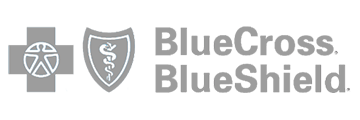Table of Contents
Contact us today so we can hear more about your story and determine from there the best course of action for your highly specific needs.
Drug Abuse & Effects on Mental Health
Unfortunately, drug abuse is becoming more and more common. It can be difficult for anyone who has to live with or deal with the addict. It can also break down every ounce of respect, self-care, mental health and belief one has in themselves.
If you are worried about addiction in you or someone you care about or love, please reach out to our Southeast Addiction team for treatment today.
If you are just wanting to know whether someone has a drug abuse disorder that can impact their mental health, read more here today.
Do You Have a Substance Abuse Problem?
If you are looking over this guide, you may be wondering what all you are going to learn. Well, let’s jump straight to the point. The first step in helping anyone to overcome drug abuse is to see if they have an addiction in the first place. Some signs that you or a loved one may have a substance abuse problem include:
- Keep taking the drug after you no longer need it
- Needing more of the drug to get the effects you were getting
- Feeling strange when the harmful substances start to wear off
- Feeling as if you can’t stop using drugs and/or alcohol, even if you badly want to
- Spending a lot of time thinking about harmful substances
- Losing interest in doing things that were once enjoyable to you
- Losing all your motivation
- Becoming more and more irritable with people
- Moderate to severe agitation and aggressiveness
- Bloodshot eyes
- Regular bloody noses
- Slurred speech when they are talking to you
- Tremors in the hands and/or legs
- Not sticking to their daily routine like they used to
- Not showing concern for themselves or others
- Keeps asking for money or other types of help
- Stopped showing up for others who they looked up to in the past
Do you know someone who has some of these issues? If so, do your best to hold an intervention with other people who care about this person. Hopefully, they will see that their drug abuse is affecting their physical and mental health and treatment should come very soon.
The Brain and Drug Abuse Related Information
Have you been noticing there is a change in your behavior or the behavior of someone you know? If so, it could be due to drug abuse. This is especially the case if you are experiencing negative mental health changes. For example, someone who is abusing alcohol may develop depression or suicidal tendencies. Someone who is getting high may not be able to focus or concentrate.
To sum it up, drugs work on the brain like this:
- Copying the brain’s naturally-based chemical messengers
- Overstimulating the brain’s reward circuit
- Overloading the brain with extra chemicals
- Binding those chemicals to the brain’s receptors
Basically, any type of drug can change the way the body and brain think or work. If you or someone you care about have a problem with drug abuse, don’t let it get any worse. Take your time to call our Southeast Addiction team of professional drug rehab agents today. We want to help you get the life you deserve.
Alcohol and Drugs – Their Mental Health Effects
There is psychological distress that is associated with drug abuse. The distress can range from very mild to extremely serious.
There is one problem though, it isn’t always clear as to what started first – the mental health issue or the addiction. The good thing is that you or your loved one can get co-occurring disorder treatment if you struggle with mental health and drug abuse issues.
Nonetheless, it has been found that those who struggle with anxiety, mood swings, stress, trauma and other mental health issues are much more likely to get drunk or high than those who don’t have mental health issues.
If you are at a higher risk of developing these issues, it would be a good idea to get ahead of the issue. This means that you even if you don’t drink or do drugs now, you can save yourself a lot of mental health issues and other disasters in your life, if you take action. You can start by going to an Al-Anon meeting which is a meeting for people who have someone in their life who suffers from addiction.
Moving Forward in Recovery
Now that you read through this guide and found out how drug chemicals attach to the brain and alter mental health, you can decide what to do next. Are you the one who has drug abuse issues or is it someone that you know? Either situation is important to our team. We want to ensure that everyone is going to get the help they need – whether they have an addiction, mental health disorder or both.
With this being said, moving forward into a recovering lifestyle is possible. Some of the tips to help you get going on this path include:
- Signing up for and going to a professional detox center (there are many facilities that offer detox and then outpatient or inpatient services)
- After detox, you can go to outpatient, intensive outpatient, partial hospitalization, or inpatient programs (if you have questions about each one of these treatments, don’t hesitate to let us know)
- Receiving co-occurring disorder treatment (for the drug abuse and mental health issues)
- Continuing through with your aftercare plan
- Going to addiction recovery meetings to lower your risk of relapsing
- Building your support network
- Keeping up with routines
- Having fun, substance-free hobbies to participate in
These are some of the best things you can do to start living a recovering lifestyle. If you want more information about how our team can help with these, speak with a member of our team as soon as possible.
Drug Abuse Affects Mental Health – Get Help with Both Today
Now that you know drug abuse does affect mental health, you can start receiving help in treating both these issues together. If you still have more concerns or questions about different types of addiction or treatment options, our team is ready to discuss these with you, too.
Contact us today to get help with both drug abuse and mental health issues starting right away.








